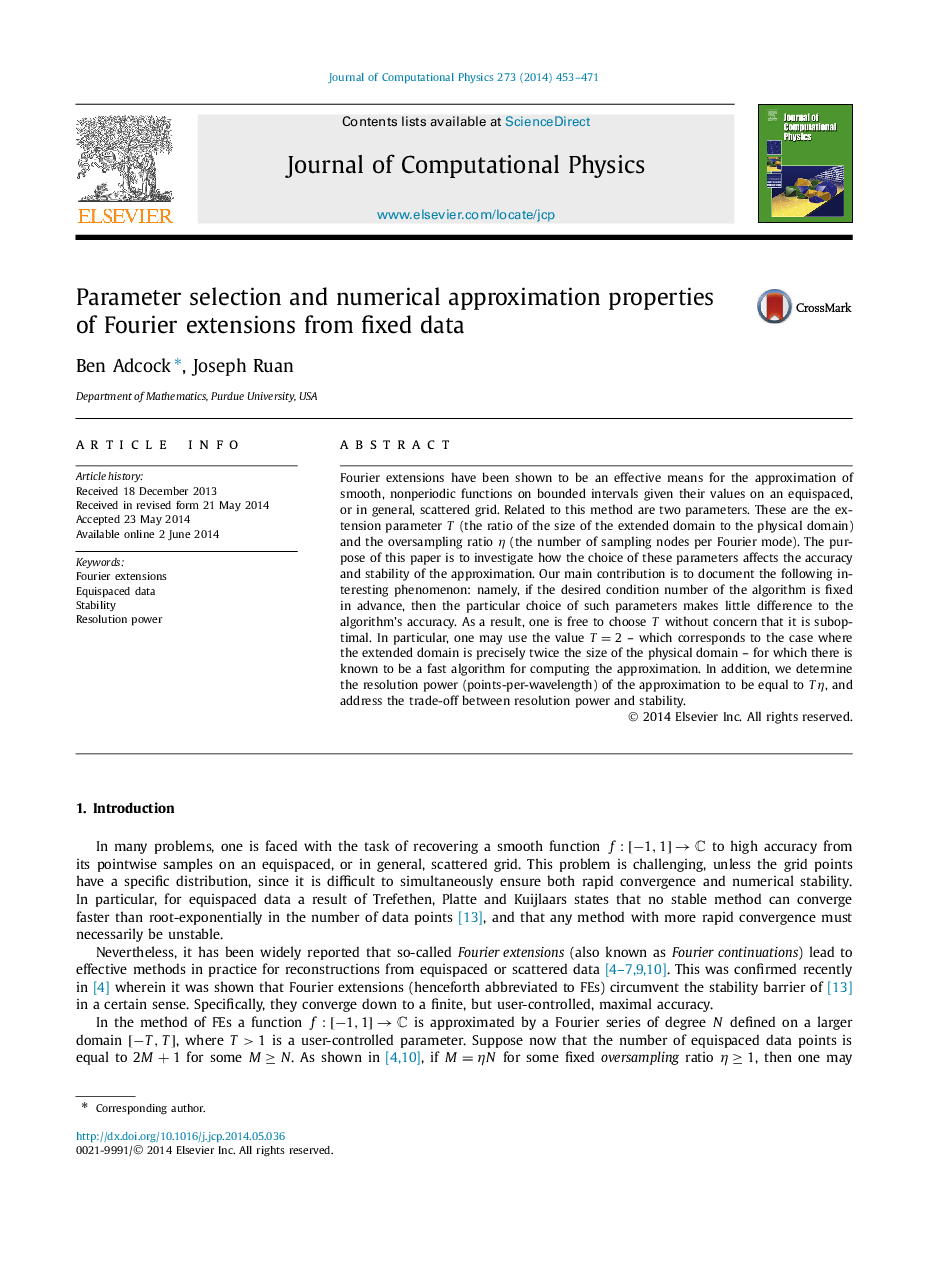| Article ID | Journal | Published Year | Pages | File Type |
|---|---|---|---|---|
| 518199 | Journal of Computational Physics | 2014 | 19 Pages |
Fourier extensions have been shown to be an effective means for the approximation of smooth, nonperiodic functions on bounded intervals given their values on an equispaced, or in general, scattered grid. Related to this method are two parameters. These are the extension parameter T (the ratio of the size of the extended domain to the physical domain) and the oversampling ratio η (the number of sampling nodes per Fourier mode). The purpose of this paper is to investigate how the choice of these parameters affects the accuracy and stability of the approximation. Our main contribution is to document the following interesting phenomenon: namely, if the desired condition number of the algorithm is fixed in advance, then the particular choice of such parameters makes little difference to the algorithm's accuracy. As a result, one is free to choose T without concern that it is suboptimal. In particular, one may use the value T=2T=2 – which corresponds to the case where the extended domain is precisely twice the size of the physical domain – for which there is known to be a fast algorithm for computing the approximation. In addition, we determine the resolution power (points-per-wavelength) of the approximation to be equal to Tη, and address the trade-off between resolution power and stability.
